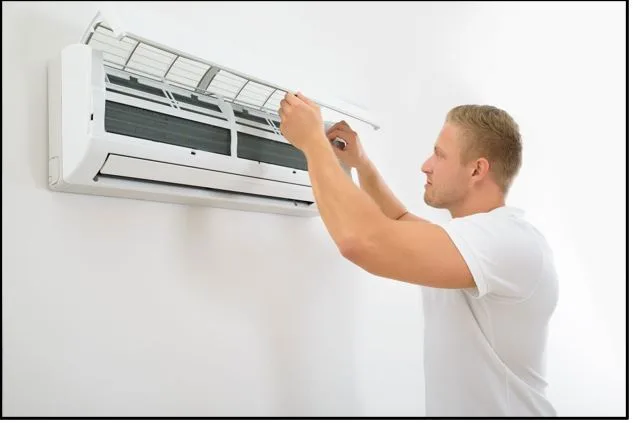AC Maintenance Checklist Every Massachusetts Homeowner Should Follow
Maintaining an air conditioning system in Massachusetts requires planning, consistency, and an understanding of local climate challenges. Homeowners who follow a structured AC maintenance routine enjoy reliable cooling, lower utility bills, and cleaner indoor air throughout the sweltering New England summers. This checklist outlines essential tasks, both DIY and professional, that every Massachusetts homeowner should follow.
Why Annual AC Maintenance Matters in Massachusetts?
Massachusetts, four distinct seasons and humid summers place extra strain on cooling systems. Without regular tune-ups, small inefficiencies compound into costly breakdowns. An annual inspection and service help:
- Preserve peak energy efficiency
- Detect refrigerant leaks before they worsen
- Prevent compressor and motor failures
- Extend system lifespan beyond 10–15 years
By scheduling a professional AC maintenance service in Massachusetts each spring, homeowners sidestep emergencies on 90° days and maintain warranty coverage on major components. Early detection of loose wiring or failing capacitors can save hundreds in repairs.
Core Homeowner Tasks
Homeowners can perform basic maintenance throughout the year. These simple steps improve airflow and reduce wear on major parts.
- Replace or clean air filters every 1–3 months
- Keep outdoor unit clear of leaves, grass, and debris
- Vacuum or dust indoor vents to prevent blockages
- Set thermostat to energy-saving mode when away
- Inspect drain pan and condensate line for clogs
These actions bolster system performance but do not replace a full professional inspection. Clogged filters alone can reduce AC efficiency by up to 15 percent.
Seasonal Professional Tune-Up Checklist
Scheduling a technician in early spring ensures the system is ready before the summer heat arrives. The following table breaks down the key components a certified HVAC specialist will inspect and service.
| Component | Task | Purpose |
| Evaporator Coil | Clean coils to remove dust and pollen | Ensure efficient heat exchange |
| Condenser Coil | Clear fins and wash coil | Improve outdoor heat rejection |
| Refrigerant System | Check refrigerant level; repair leaks if found | Maintain cooling capacity |
| Electrical Connections | Tighten wiring, test capacitors, check voltage | Prevent shorts and motor failures |
| Blower Motor & Fan Belts | Lubricate bearings, adjust belt tension | Reduce friction and noise |
| Thermostat Calibration | Verify and adjust temperature settings | Enhance comfort and reduce cycling |
| Drainage Systems | Clear condensate drain line and pan | Prevent water damage and mold growth |
These detailed inspections form the backbone of professional air conditioning maintenance.
Recommended Service Schedule
A tailored maintenance schedule accounts for unit age, usage intensity, and home size. The table below offers a guideline.
| Timeline | Description |
| Early Spring (Mar–Apr) | Full professional AC tune-up before the cooling season |
| Mid-Summer (Jul–Aug) | Quick check for refrigerant levels and coil cleanliness |
| Late Summer (Sep) | Final inspection to prepare system for off-season storage |
| As-Needed | Immediate service if unusual noises, odors, or leaks occur |
Homes over 10 years old, large multi-zone setups, and residences with pets or allergy concerns may benefit from bi-annual inspections to ensure consistent performance.
Benefits of Regular AC Tune-Ups
Professional maintenance delivers tangible advantages:
- Lower utility bills through improved energy efficiency
- Reduced risk of emergency breakdowns in peak summer heat
- Cleaner indoor air with fewer allergens and mold spores
- Prolonged equipment life and delayed replacement costs
- Compliance with manufacturer warranties on major components
- Enhanced comfort with consistent temperature control
These benefits translate into safety, savings, and peace of mind—especially during Massachusetts’ hottest months.
Choosing a Trusted HVAC Partner
Selecting the right service provider ensures quality workmanship and transparent pricing. Homeowners should look for:
- NATE-certified technicians with local Massachusetts licensing
- Proven experience on both central and ductless systems
- Clear maintenance agreements and no-surprise estimates
- Strong customer reviews and responsive emergency support
- Energy-saving advice and rebate guidance
When evaluating proposals, compare cost estimates, included tasks, and any satisfaction guarantees.
Planning for Upgrades
Even the best care can’t eliminate age-related wear. Homeowners should consider system replacement when:
- Repair bills exceed 50% of a new unit’s cost
- Cooling capacity declines significantly despite maintenance
- Refrigerant type is phased out (e.g., R-22)
- Energy bills climb year after year
- Indoor comfort remains inconsistent after tune-ups
Modern inverter-driven heat pumps and smart thermostats deliver improved efficiency and zoning control.
Final Thoughts
Regular AC maintenance isn’t just a nice-to-have, it’s essential for comfort, efficiency, and long-term savings in Massachusetts. By following this checklist and scheduling routine service before summer hits, homeowners can avoid costly breakdowns, breathe cleaner air, and get the most out of their system year after year.
Endless Energy provides comprehensive AC maintenance service in Massachusetts, ensuring homeowners stay cool, comfortable, and confident in their air conditioning systems.
(FAQs) Frequently Asked Questions
- How often should Massachusetts homeowners schedule AC maintenance?
Annual inspections each spring are the minimum recommendation. Homes with heavy use or older equipment may need bi-annual checkups.
- Can homeowners perform maintenance tasks themselves?
Yes. Replacing air filters, clearing debris around the condenser, and adjusting thermostat settings are DIY tasks. Certified technicians should handle refrigerant checks, electrical work, and coil cleanings.
- What are the signs an AC needs immediate service?
Listen for grinding or rattling noises, watch for ice buildup on coils, note sudden rises in energy bills, and observe uneven cooling across rooms.
- Does maintenance improve indoor air quality?
Absolutely. Regular coil cleanings and filter replacements remove dust, pollen, mold spores, and bacteria, reducing allergens and improving respiratory health.





